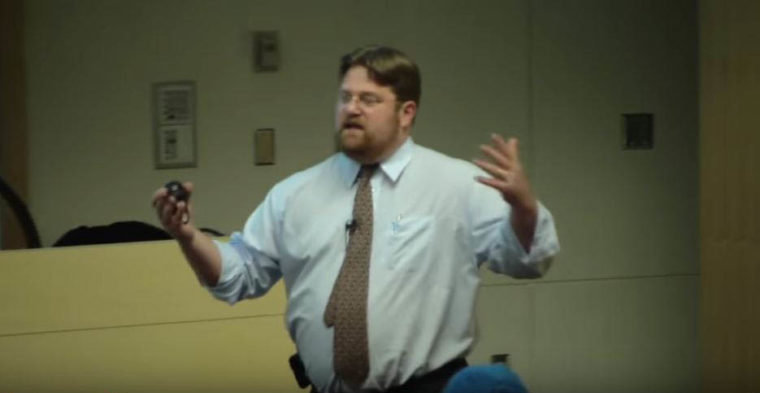
“Cow” by Lars Pistaj on Flickr
Like all east coast American liberals, I am required by my contract to like This American Life. Listening to it this week, however, provided some new content for this blog, which is quickly becoming way more focused on where you should give your money to charity than I’d initially planned it to be.
Anyway, this week on TIA, in conjunction with the other show that my New World Order masters use to implant my brain with information, Planet Money, they were talking about a very interesting charity, GiveDirectly. GiveDirectly gives poor people money.
That’s, well, pretty much it.
Now, even though I talk a lot about structural change and the like, there’s a lot to love about this model. In class, for instance, when I talk about trying to help people out, I always tell my students that they should seriously consider whether their plan, whatever it is, is better than just handing out money (my favorite example of this is discussions about how we need to carefully target economic stimulus money instead of just “throwing money in the air” or something similar – of course, there are better and worse ways to stimulate the economy but at the end of the day, yeah, the main point is just to get some money out there, so simply throwing it in the air for anyone to catch is far from the worst idea).
There are two things that the story made me think about, however.
Paternalism vs. Public Goods
Discussions of whether to just hand out money often seem to come down to questions of paternalism. This is basically the mundane, “that panhandler will just spend the money on booze” problem/argument.
In one corner, you have the person who says: poor people wouldn’t be poor if they didn’t make bad choices a lot of the time, and we know pretty well what poor people need to do to un-poor themselves. So, if we put restrictions on the money we give them, like requiring it to be spent on healthy food, or housing, or education, then it’s a win-win. Smart poor people would spend on those things anyway; stupid poor people are being saved from themselves.
In the other corner, you have the person who says: this is all very patronizing. People generally know what is best for them. And anyway, we shouldn’t be so confident that we, those of us who are not and have not been poor, know better. For instance, some decisions that often come in for criticism, like spending on “luxury” goods, make sense when you actually pay attention to the human need for pleasure and dignity in their lives, and criticism is more about us wanting the poor to be properly ascetic to earn our pity than it is about figuring out what’s actually good for them. Yes, sometimes people make bad decisions. But they make fewer bad decisions for themselves than we do for them.
One thing that strikes me as missing from this (very stylized) argument is the role of public goods. This argument makes a lot of sense when you think what the poor are mostly lacking are private goods – things that individuals own, that are only used by one individual, etc. (in the lingo, things that are rival and excludable). And in those terms, you can probably tell that my sympathies are with the “let people do what they think is best” side of things.
But what if what is lacking are public goods? The one that comes to mind for me is public safety. Everyone is better off if there is a pretty non-corrupt, even-handed system of policing (or something like it) that prevents, defuses, and deters violence. Yes, I can have private security, but in the real world that’s usually a poor second – I have to restrict my movement a lot more, I have to worry a lot more, etc. And working on conflict, I’m familiar with the way that lack of security can keep people from getting themselves out of poverty. There are also less dramatic examples, like digging wells.
The problem is that there are well-known coordination problems with creating public goods, which is why the mainstream conventional wisdom (certainly not unanimous) is that they need to be provided by non-market, coercive entities like the state. In a nutshell, why would I pay my share of a police force if I’m going to benefit from it even if I don’t pay? Giving people more money won’t automatically solve this problem – people with lots of money still face the temptation to free ride.
I actually suspect that there may be more of these kinds of goods that poor people need than we sometimes appreciate, but mostly because I’m a Marxist weirdo interested in social structures. Giving people money within the current system will certainly help them, though, so it’s not everything.
Two side notes. First, if you buy this, it would require dramatically changing the focus of most “charity.” If you’re comparing GiveDirectly to, say, Oxfam, then you’re mostly talking about provision of private goods. This kind of concern only applies if you’re comparing giving to GiveDirectly to giving to something like basic-science research or the Communist International.
Second, it shouldn’t be read as “giving to public goods is always a good idea when compared to giving to private goods.” We, you and I, we’re not magic. If I give $1000 to some poor Kenyan, one thing she can do is take the time she’d spend earning $1000 and instead spend it organizing in her community. It’s entirely plausible that she’d do a better job at getting public goods provided. The advantage that relatively wealthy foreign donors have at this sort of thing would primarily be if they’re trying to influence actors in their own society (like lobbying to have pharma let more generic drugs be made) or maybe use pull at the governmental level (though this would apply mostly to very large donors).
What About Markets?
The other question – and this is a totally honest question-question, not “aha! I have a question you cannot possibly answer!” – I had when listening to the discussion of GiveDirectly was, what about markets?
This is related to the above, since a market is a kind of public good. Yes, we buy private goods in a market, but the existence of the market is a public good. If this sounds silly, keep in mind that markets aren’t just “some people show up and sell some stuff,” they require rules about property to be observed/enforced (otherwise “selling” makes no sense), in the modern world someone is taking care of making a currency work, contracts need to happen, somehow rampant theft needs to be prevented, etc. If you don’t like capitalism, fine, I’m with you, but even non-market kinds of exchange of goods and services require a forum for it, which is a public good. (Or, at least, markets are usually public-good-like, you could probably create a fancy one that isn’t quite, but that’s not the main form).
One of the comparisons in the show was between the GiveDirectly model and Heifer International (another org that I’ve given money to, in fact in lieu of favors at my wedding). Heifer gives people high-quality cows and training, not cash.
Initially, it might seem – and this is the way the discussion was set up – that this is a simple contrast. Let’s imagine that the cost for someone to buy the cow and the training would be $1000. It may seem like we either buy paternalism (and maybe we should, though I’m skeptical) or giving $1000 cash is the clear winner. If someone wants the cow and training, she can just go ahead and buy it. But if she prefers something else, she doesn’t need to.
What this leaves out is that I can only buy a cow if someone is selling a cow, and ditto for training. The discussion makes a big deal about how the Heifer cows are much better than the cows available locally. So what if I want the Heifer cow and the training, and would spend $1000 for it, but I can’t buy it at all because GiveDirectly came in and gave me cash, instead of doing something else?
One way to approach this would be to say that I just haven’t counted all the costs in the situation properly. Heifer International isn’t just providing a cow and training, they’re providing cows and training in rural Kenya. If getting all that stuff and getting it to rural Kenya costs $2000, then it’s totally unsurprising that giving someone $1000 instead will not be as good as giving them a thing that costs twice as much. So to fix the contrast, give them $2000, and let them mail order a cow and a trainer.
But I worry that it’s not quite that simple. There are a lot of fixed costs involved in this sort of thing. We don’t have good cow-mailing infrastructure. A trainer can’t go to rural Kenya for an hour and then go home to her family in Sweden. If an individual person wanted the cow and training, trying to cover these sort of costs could in principle be paid for, but it would be prohibitive. Much more than the nominal doubling of the market cost of the cow in an existing market. It’s in this way that a market for cows and trainers in rural Kenya functions as a kind of public good.
Now, Heifer can provide these things without it getting ridiculous because it provides them to a bunch of people at a time. It surely has high costs associated with getting cows and trainers to rural Kenya, but it knows it can spread them out among lots of people, so it’s maybe only costing that $2000 per person when you figure the actual cow and the actual training plus the share of shipping cows and housing trainers, etc.
You could have a situation where beneficiaries of GiveDirectly do something very similar. If, say, 1000 recipients of $1000 each made it clear to the international cow-and-training industry that they wanted to be able to buy cows and trainers in rural Kenya, someone would set up a franchise of Hilde’s Cow and Training Emporium there. But that’s a coordination problem again – I’m not going to save my $1000 until the emporium opens unless I know that lots of people around me are going to as well. Heifer basically solves the coordination problem via giving gifts-in-kind and negotiating as a large collective buyer with Hilde.
So, my question is: how much should this be a worry in the case of groups like GiveDirectly? How can we best deal with lacks of markets and market failures?
On the one hand, this doesn’t seem like a pure philosopher’s worry. We know that the poor pay more for lots of things, often in a nutshell because they don’t have access to the efficient markets and financial systems that the wealthier among us do. And things it’s hard for one person to buy, like irrigation systems and wells, seem like pretty typical things rural poor areas in developing nations are lacking.
On the other hand, again, external donors aren’t magic. If enough of us can agree to donate to a large org like Heifer to make it feasible for them to build an infrastructure that supplies cows to rural Kenya, it’s not like rural Kenyans who get GiveDirectly money couldn’t have a town meeting and decide to chip in on a larger project.












